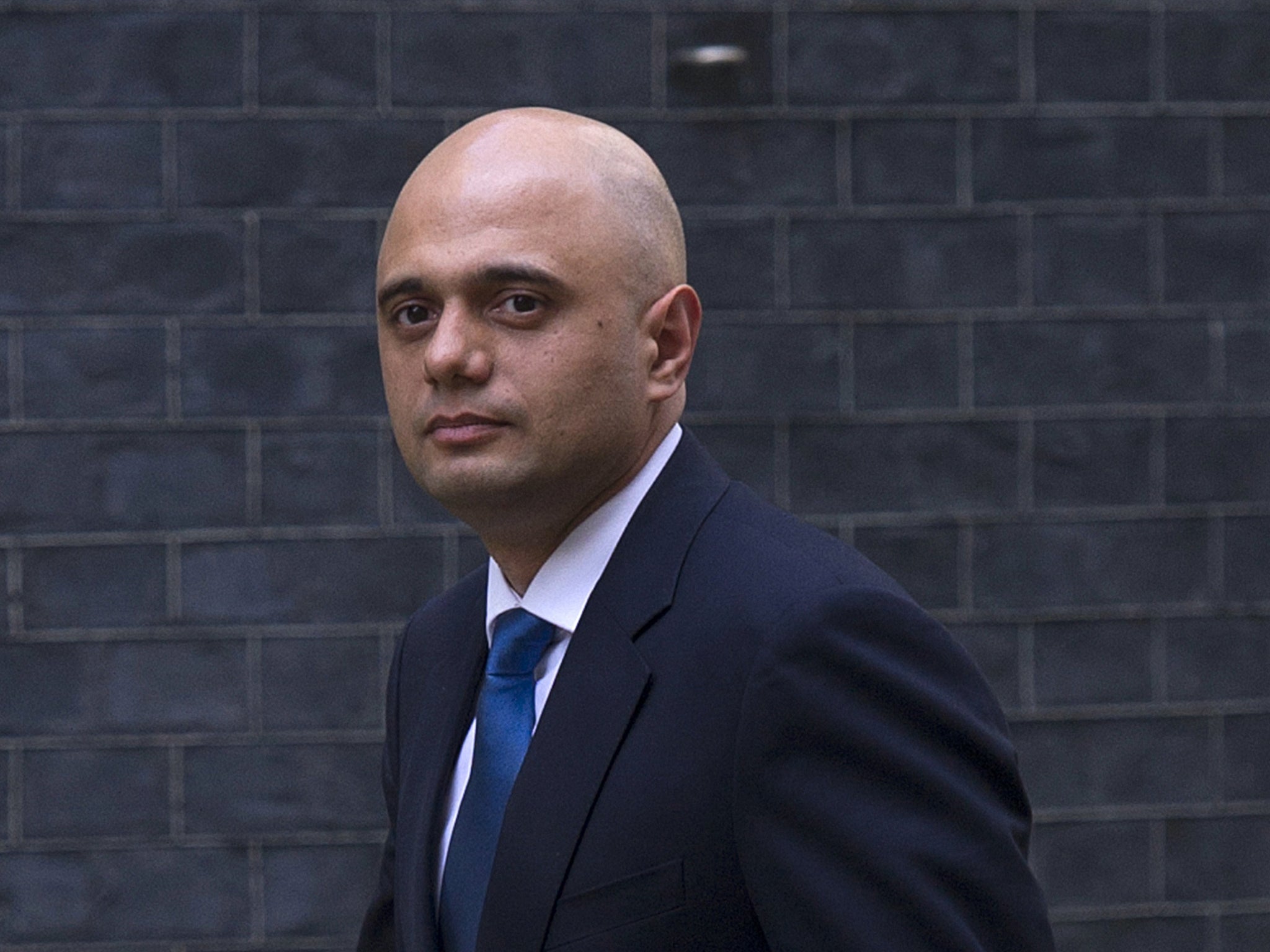Sajid Javid has every right to become Culture Secretary, and those who say otherwise are snobs
Who's to say that this former banker can't appreciate the arts?

Your support helps us to tell the story
From reproductive rights to climate change to Big Tech, The Independent is on the ground when the story is developing. Whether it's investigating the financials of Elon Musk's pro-Trump PAC or producing our latest documentary, 'The A Word', which shines a light on the American women fighting for reproductive rights, we know how important it is to parse out the facts from the messaging.
At such a critical moment in US history, we need reporters on the ground. Your donation allows us to keep sending journalists to speak to both sides of the story.
The Independent is trusted by Americans across the entire political spectrum. And unlike many other quality news outlets, we choose not to lock Americans out of our reporting and analysis with paywalls. We believe quality journalism should be available to everyone, paid for by those who can afford it.
Your support makes all the difference.The novelist and poet Michael Rosen asked last week what a man like Sajid Javid could possibly know about culture. After all, unlike Rosen, Javid didn’t study English at University. He didn’t work his way through a masters and PhD in English Literature, or slave away in the cultural industries.
Instead, Javid went to a comprehensive, then a state-run technical college, before enrolling at the University of Exeter, where he studied Economics and Politics. From there, he joined Chase Manhattan Bank before he was headhunted to Deutsche Bank. Before giving it all up to multiply his sins and become a Conservative MP, he was on a £3m a year salary.
Of course, Rosen concedes, he might have attended a few art galleries during this time, and gone to the theatre and cinema every now and then. He might have even read some Shakespeare.
But according to Rosen, this isn’t enough. He didn’t work his way through a cultural career, and hasn’t been conditioned since birth to understand the primacy of arts organisations. Instead, he chose to become a banker, and as such, can have no knowledge of what culture really is. His attitude to life, Rosen says, is all wrong.
Is there not something snobbish at the heart of this? A working class boy who worked his way into a very high-paying job, only to give it all up to become a public servant, can have no knowledge of culture because of the way he made his money. "What is he doing here?" the whispers seem to say.
He can’t have accepted the role because he likes culture, he must be looking for a quick buck. You will notice how the possibility that his family had any interest in culture while he was growing up is not even entertained. No, his working class upbringing was only concerned with gross materialism, apparently. Javid could not possibly conceive of separating aesthetic and monetary value, and is just another Tory philistine.
Apparently, the perfect candidate for the job would be someone who has worked in a cultural industry all their life. Almost born for the role, they would be educated to perhaps doctoral level. They would have written or practised widely and to great acclaim, with perhaps even one or two leaders in a national newspaper. In other words, they would most likely be white and middle-class, with a privileged education and upbringing.
This is astoundingly hypocritical coming from the same voices that rightly say we need to break the status quo of the cultural industries. If one assumes that deep cultural knowledge can only come from lifelong participation in great cultural organisations, then a large chunk of the population would be excluded. According to this model, art is only art when legitimised by organisations that rely on privilege for access.
This is an archaic and classist conception of culture and cultural knowledge, against which many artists would rightly struggle.
So who better than an outsider to work with these conservative institutions? He may be privileged, and a former banker, but there is no such thing as an ideal candidate. There is hardly a surfeit of working class people in politics.
Javid’s wallet may have eclipsed his working class background, but to claim he can have no understanding of the value of anything beyond money is as nonsensical and snobbish as saying that a banker can’t write poetry. As Philip Collins points out in The Times, T.S. Eliot did just that.
Join our commenting forum
Join thought-provoking conversations, follow other Independent readers and see their replies
Comments